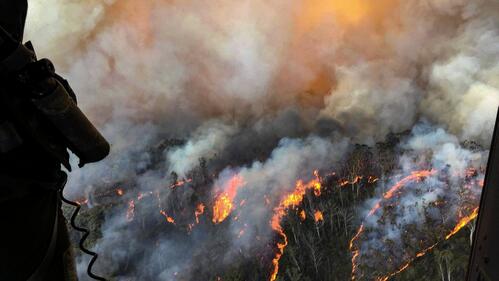Wildfires
Wildfires (also known as bushfires, brush fires or forest fires) are large, uncontrolled and potentially destructive fires that can affect both rural and urban areas. They can spread quickly, change direction and even 'jump' across large distances when embers and sparks are carried by the wind. They are caused by a range of natural causes (such as lightning) or by human carelessness (such as a discarded cigarette). The spread of a wildfire depends on the arrangement of land, available fuel (vegetation or dead wood) and weather conditions (wind and heat). They can start in just seconds and turn into infernos in a matter of minutes.

Do's and don'ts
Do you know how to prepare for a wildfire?
Assess and plan
Regularly inspect your home for hazards such as exposed firewood, gutters clogged up with dry leaves and dead or overhanging branches. Make your property easy for fire teams to find and access with proper signage and wide driveways. Report hazardous conditions to the authorities. And make a wildfire safety or evacuation plan for your family, including your pets.
Reduce risks
You can prevent wildfires by being vigilant: never discard cigarette butts on the ground, never leave an outside fire unattended and properly dispose of any glass (which can reflect sunlight and start a fire). Build your home in a safe location and on level ground if possible, as fire travels more quickly uphill. Maintain your structure properly, clear flammable materials, and maintain water sources for firefighting. Practise your wildfire plan.
Prepare to respond
During the fire season, monitor conditions and listen closely to official advice. Leave if you think you should or if the authorities tell you to—very few homes are able to withstand severe wildfires. If you have time, turn off gas and shut doors and windows before you leave. Ensure your vehicle fuel tank is full and, when evacuating, keep checking fire updates to make sure your planned route is safe. Wear protective items such as sturdy shoes and long, cotton clothing.
